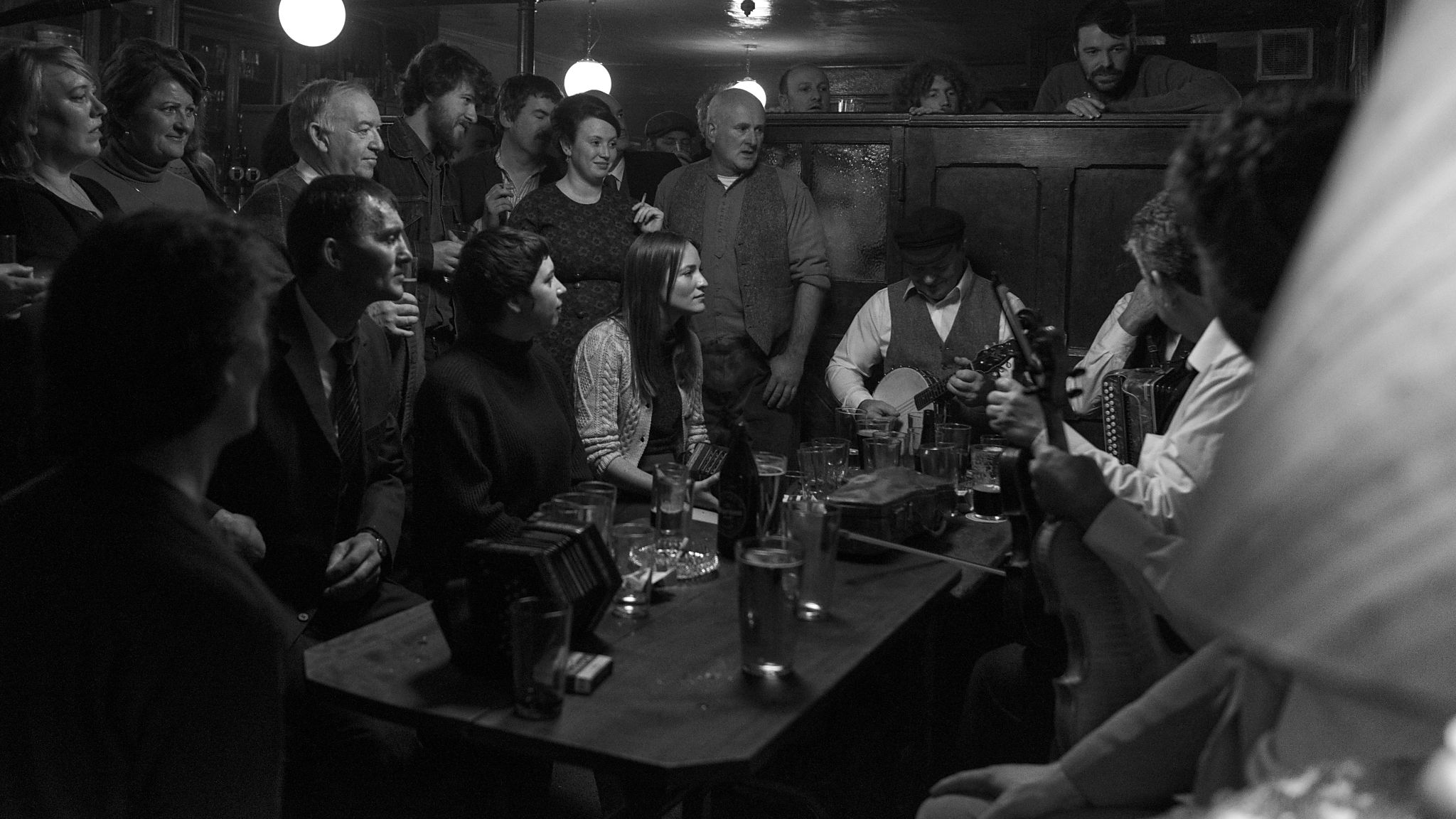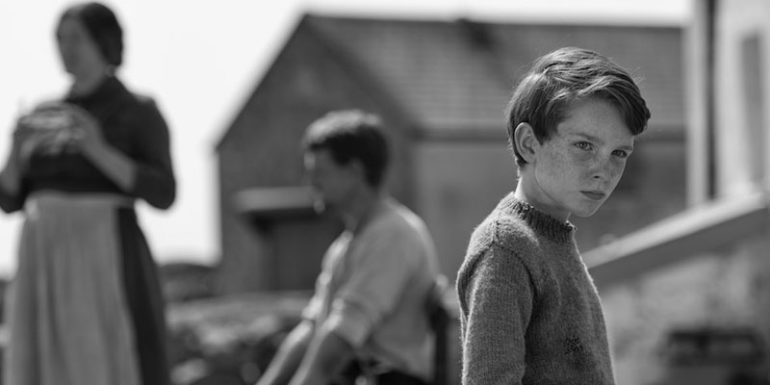The release of Walk Hard: The Dewey Cox Story in 2007 was supposed to have killed the biopic dead. Of course it did no such thing. A note perfect and hilarious send up of the ‘oh so familiar’ plot beats of biopics exaggerated for laughs but still on the money. Biopics continue unabated, plot beats be damned, in all their shiny, Oscar hopeful, crowd pleasing glory. Films since, such as J Edger, The Theory of Everything and The Imitation Game continued being all prestigious and dull, seemingly learning nothing from the Dewey Cox story. And why should they when risk averse Hollywood awards them prizes? The challenge for filmmakers in this sub-genre is try and tell the story of a life without succumbing to cliché. The news that Pat Collins was making his first narrative feature since Silence and it was to be a biopic was fascinating. Collins, the very definition of an idiosyncratic filmmaker, is not overly concerned with narrative convention so we could rest assured that he was not going to go ‘all Hollywood’. But by broadening his canvas Collins has delivered the best film of 2017.
Song of Granite tells the story of Joe Heaney the acclaimed sean-nós singer. Its telling is both straight forward and circular. We follow a rough chronological path but eventually return to where we started. Kind of. We begin in Carna in Galway, a place rendered mythical by the dazzling monochrome cinematography of Richard Kendrick. The camera follows young Joe (Colm Seoighe) as he walks/skips/runs across a seemingly endless vista of whitewashed cottages, the shots teeming with lives lived, jobs worked. It does a terrific job of summing up the area and the people. There are small scenes in school and out and about, always learning be it religious catechism, dancing, singing or fishing. There is work to do here and it serves a reminder of the real work done and skills learned in small communities that go back a long time. It is not only the songs that last. Collins captures young Joe as a restless spirit always on the move, destined to be that way always.
This restlessness brings the adult Joe (Michael O’Chonfhlaola in middle age) to Glasgow, which like other UK cities swallowed so many working men into their building sites and belched them up into their pubs. With Heaney the pub is more than a drinking den, it is alive with the possibility of art, of creating something magical, a cathedral of remembering and giving thanks to those who have sang the songs before. A songbird confessional. O’Chonfhlaola’s face in close-up looks sculpted out of the very granite of the title, hard worn. The finest scene in the film lasts about 10 minutes or so, covers three songs in full and takes place in a Dublin pub. A passionate and forceful Rocky Road to Dublin by Damien Dempsey is followed by a sad and beautiful The Galway Shawl by Lisa O’Neill. We then get an extraordinary take of Heaney singing An Tiarna Randall with eyes closed and clutching an older man’s hand tightly as if to stop himself floating away.

And floating away is apt as the restlessness returns and Joe goes to America, wife and children left behind. ‘You always had your eye on the horizon, Joe’ his father tells him aptly at one point. During this part of the film we see how masterfully Collins slips in documentary footage, very real and yet comfortable in this type of filmic mosaic. Heaney’s children lend their voices to the sound design of singing and score, talking with bewilderment as to why their father leaves them and goes to America. One startling confession by one the children in the film shocks with the casualness of the delivery. At one point in his job as a doorman in New York Heaney slips off his uniform glove and grabs the marble of the door frame tightly, as if it might have the power to transport him back to the rock walls of his youth.
In Collins only previous narrative film Silence Eoghan (Eoghan Mac Giolla Bhride) looks at the land anew after coming home from abroad. In the final act of Song of Granite there is regret for not going home at all. Macdara Ó Fátharta plays an older Heaney as somewhat cantankerous, regretful and sad. And home is an interesting place, it is Ireland, it is family, a state of mind, its people, the songs. The older Heaney wants all but does not know how to go about it. The score by Luc Raymond feels appropriately mournful at this point with regret illuminating his features at regular intervals. Conversations about songs not recorded, trips not made, sleep not enjoyed in close up Heaney’s scared face tell all. There is no judgment from Collins as to Heaney’s choices, instead we get empathy.
Song of Granite is an essential film. It feels like the film Collins has been building towards. It is eloquent, elegant, daring and very beautiful. The whole cast and crew are at the very top of their game. All three actors who play Heaney are great but special praise must go to O’Chonfhlaola who does most of the singing and carries the film through perhaps its most important section. The score, sound design and brilliant editing by Tadhg O’Sullivan create a wonderfully fluid experience, at times delicate and harsh. The script by Eoghan Mac Giolla Bhride, Collins and Sharon Whooley is as elegant and spare as we would expect in a Collins film. Song of Granite had the effect of making me weep for a deep part of our culture that I barely know. There can be no higher praise. An absolute masterpiece.

